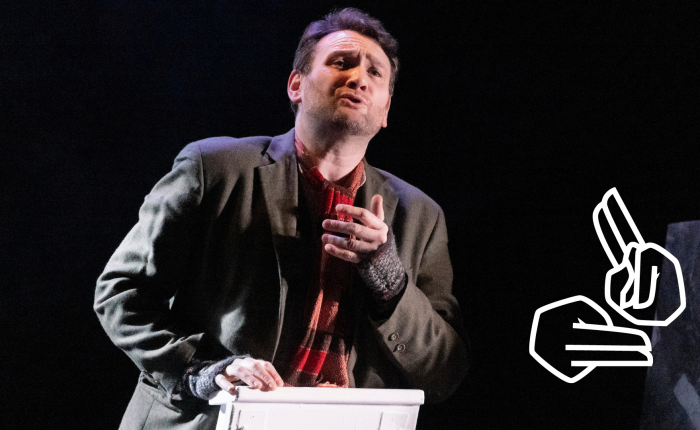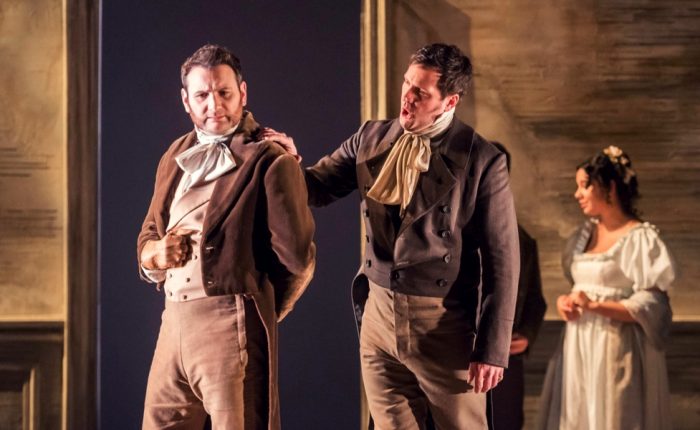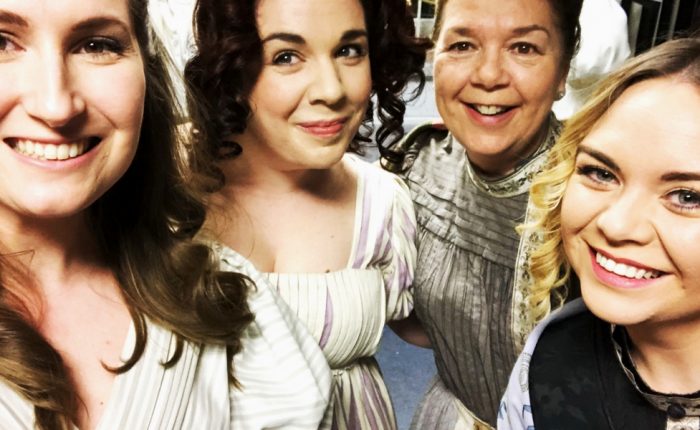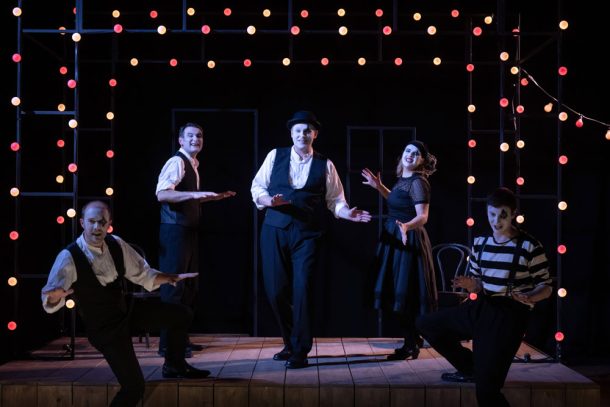Our Newport performance of Eugene Onegin of March 16th at The Riverfront will be our second ever BSL interpreted show and we’re delighted to be joined by Julie Doyle who worked with us last Spring to interpret our performance of Semele in Cardiff.
Julie has 20 years of experience interpreting shows – but is new to opera and excited to be getting involved in our work. We caught up with Julie earlier this week to chat about her approach to signed opera- and why it’s important that deaf audiences can access our work.
She told us: “I’ve been interpreting for around 20 years, everything from Glastonbury and Relaxed Proms to opera for MWO and Opera Ddraig, and I am always seeking new challenges and experiences.
Having interpreted many plays and productions, Opera is a new genre for me. I enjoy finding ways to make Opera accessible for Deaf people. Also, at the tender age of 10, I briefly performed as an urchin in WNO’s Carmen for Prince Charles and the late Princess Diana. Something must have happened in my teens as nowadays I’m certainly not known for my singing ability!”
Signing opera focusses on the dramatic elements of the work – and Tchaikovsky’s Eugene Onegin, originally based on a verse novel, is an ideal piece for this approach. Our classic production, with period setting and costume, focuses on telling the story of Tatyana’s journey from an innocent county girl swept off her feet by a surly stranger – to a society hostess, living a life of dull repose in luxury with a man she does not love.
Each character’s story, from Olga’s flirtatious frivolity and Lensky’s poetic sensitivity and pride, to Filipyvena’s stoicism, plays out against a beautifully lit set contrasting the simplicity of country life with the opulence of Gremin’s home in the ball scenes.
Julie explained: “For so long mainstream Theatre has not been accessible for Deaf people. I think there are many misconceptions about what Deaf people might like to experience and Opera with all its drama and emotive storytelling should be accessible for all. “
Julie’s work on the piece starts with a film of the dress rehearsal and a copy of the libretto, working out her approach to the performance and how BSL can work with the show.
She told us: “It certainly takes a lot of preparation, but generally I firstly glance at the script to understand the characters and plot.
Then I’ll watch a performance beforehand, looking out for nuances that can help me derive meaning from the script. I’ll also check for visual cues. This is so that I can pause my interpretation to allow the Deaf audience to enjoy the moment without me distracting them. Then I’ll go back to the script in more depth – understanding the meaning behind the dialogue. Then I’ll think about the appropriate translation into BSL bearing in mind factors such as the era and gender, as this will affect my linguistic and lexical choices.”
In Julie’s experience her BSL signing adds to many hearing people’s experience of the show – as well as making the work accessible to deaf audiences and highlighting the need for better access to theatre: “ Obviously it brings Deaf people to the show and increase accessibility but quite often I get hearing people enjoy the visual aspect of the interpretation. I have had a few people say it brings extra clarity or meaning for them even though they don’t understand BSL!
“More importantly I hope it brings accessibility and equality to the forefront of people’s minds and may even inspire some to learn BSL which would be marvellous
We’re still learning about how to make MWO’s work more accessible to deaf audiences, and how to work in a more integrated way with Julie in the future, but it’s an exciting journey and helps us to share our passion for opera with everyone.
Come and see the signed performance in Newport – whether you’re a BSL user or not – and please help us to spread the word about Julie’s work.





